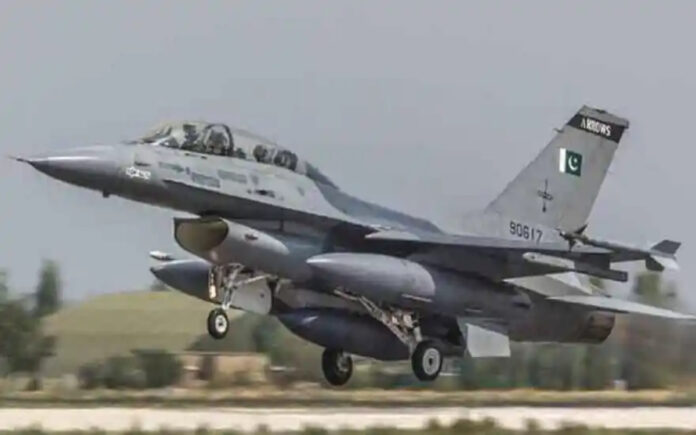Islamabad/Washington: U.S. President Donald Trump has approved $397 million for Pakistan to sustain its F-16 fighter jet fleet for counter-terrorism operations, despite imposing a 90-day freeze on foreign aid soon after taking office.
The decision marks a shift in Trump’s approach to Pakistan, as he had previously halted security assistance to Islamabad during his first tenure—a move later reversed by the Biden administration.
Pakistan’s F-16 Fleet Gets U.S. Support
Trump’s foreign aid freeze, initiated on January 20, halted funding for international security programs. However, as of February 13, his administration had released approximately $5.3 billion under 243 exceptions, according to Reuters.
Of this amount, nearly $397 million was allocated to Pakistan under a U.S.-backed program designed to ensure that its F-16 jets are used strictly for counter-terrorism operations and not against India.
This move echoes a similar decision by the Biden administration, which approved $450 million in September 2022 to maintain Pakistan’s F-16 fleet. At the time, Washington clarified that the funding was solely for sustaining the aircraft and did not include new weapons or technological upgrades.
Trump’s Foreign Aid Exemptions and Military Priorities
The Trump administration’s selective approach to foreign aid suggests a strong focus on counter-terrorism and drug trafficking prevention. According to Reuters, approximately $4.1 billion of the exempted aid falls under the State Department’s Bureau of Political-Military Affairs, which oversees arms sales and military assistance.
In contrast, U.S. humanitarian aid programs have received significantly fewer waivers. USAID, the government’s development funding arm, has only been granted about $100 million in exemptions—just a fraction of its $40 billion annual budget. Additionally, Trump ordered the dismissal of approximately 1,600 USAID employees, signaling a shift in priorities away from humanitarian efforts.
Despite the broader aid freeze, longstanding U.S. allies Israel and Egypt also received exemptions. Last year, the United States remained the world’s largest aid donor, distributing approximately $72 billion in foreign assistance.
Legal Challenges to Trump’s Foreign Aid Freeze
Trump’s executive order pausing foreign aid has faced legal challenges. A U.S. judge recently ruled that the administration must restore foreign aid programs and awards that were in place before the presidential inauguration. However, it remains unclear whether any additional exemptions have been granted since February 13, according to Reuters.
Also Read | Congo Conflict Escalates: 7,000 Dead, 450,000 Displaced
Biden’s View of Pakistan as a Counter-Terrorism Partner
Under the Biden administration, the U.S. viewed Pakistan as a critical partner in counter-terrorism efforts. The State Department’s Integrated Country Strategy, published in March 2022, emphasized Islamabad’s growing role in regional security, especially after the withdrawal of NATO forces from Afghanistan in 2021.
Also Read | U.S. Deploys B-52 Bombers Over Estonia as NATO Strengthens Eastern Flank
Biden’s administration sought to bolster Pakistan’s civilian government, military, and civil society to combat violent extremism. As part of this strategy, the U.S. approved $450 million in funding for the maintenance of Pakistan’s F-16 fleet, clarifying that the aid would not alter the military balance in South Asia.
With Trump’s recent approval of $397 million in funding, Pakistan continues to receive U.S. support for its F-16 program, underscoring Washington’s ongoing counter-terrorism priorities in the region.



